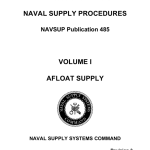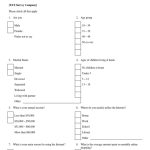Discover Australia’s Ultimate Ethical Shopping Guide: Empower Your Choices And Make A Positive Impact!
Ethical Shopping Guide Australia
Greetings, Readers! Today, we are here to provide you with an informative and valuable article on ethical shopping in Australia. In this guide, we will explore the principles and practices of ethical shopping, as well as its benefits and drawbacks. So, let’s dive into the world of ethical shopping and discover how you can make a positive impact through your purchasing decisions.
Introduction
Ethical shopping, also known as conscious consumerism, is a growing trend that focuses on making ethical and sustainable purchasing choices. It involves being mindful of the social, environmental, and ethical impact of our buying decisions. In Australia, this movement has gained significant momentum, with an increasing number of consumers seeking out ethically-produced goods and services.
1 Picture Gallery: Discover Australia’s Ultimate Ethical Shopping Guide: Empower Your Choices And Make A Positive Impact!

At its core, ethical shopping aims to ensure that the products we buy align with our personal values and beliefs. It involves supporting businesses that prioritize fair trade, sustainable practices, animal welfare, and environmental preservation. By choosing ethically-made products, individuals can contribute to a more just and sustainable society.
In this table, you will find comprehensive information about the ethical shopping guide in Australia:
Topic
Description

Image Source: wwf.org.au
Ethical Shopping
An overview of ethical shopping and its significance
Benefits
The advantages of ethical shopping for individuals and communities
Disadvantages
The potential drawbacks or challenges of ethical shopping
What
An in-depth exploration of what ethical shopping entails
Who
Identifying the key players in the ethical shopping movement
When
Understanding the historical context and timeline of ethical shopping
Where
Discovering where to find ethically-made products in Australia
Why
Exploring the reasons why individuals choose to engage in ethical shopping
How
Providing practical tips and strategies for practicing ethical shopping
FAQ
Answering frequently asked questions about ethical shopping
Conclusion
A summary and call to action for readers to embrace ethical shopping
Final Remarks
Important considerations and disclaimers regarding ethical shopping
What is Ethical Shopping?
Ethical shopping involves making choices that prioritize social, environmental, and ethical considerations. It means supporting companies that uphold fair trade practices, ensure safe and fair working conditions, and minimize their environmental impact. By being conscious of the products we purchase, we can make a positive difference in the world.
Who is Involved in Ethical Shopping?
The ethical shopping movement encompasses a wide range of stakeholders. It includes consumers who actively seek out ethically-made products, businesses committed to sustainable and ethical practices, non-governmental organizations advocating for fair trade, and regulatory bodies promoting responsible consumption.
When Did Ethical Shopping Begin?
The roots of ethical shopping can be traced back to various social and environmental movements. From the fair trade movement of the 1960s to the rise of environmental consciousness in the 1990s, ethical shopping has evolved and gained traction over the years.
Where Can You Find Ethically-Made Products in Australia?
Australia is home to numerous retailers and online platforms that specialize in ethically-made products. From ethical fashion brands to sustainable home goods, consumers have a wide array of choices. Local markets, eco-friendly stores, and online directories are great resources for finding ethically-produced goods.
Why Choose Ethical Shopping?
People choose ethical shopping for various reasons. Some prioritize fair trade to support marginalized workers, while others focus on environmental sustainability. Ethical shopping also allows individuals to align their purchasing decisions with their personal values and contribute to positive social change.
How Can You Practice Ethical Shopping?
Practicing ethical shopping starts with being informed. Research brands and their practices, look for ethical certifications, and support local and sustainable businesses. Additionally, consider reducing consumption, reusing items, and recycling when possible.
Advantages and Disadvantages of Ethical Shopping
Advantages:
🌟 Positive social impact: Ethical shopping supports fair wages, safe working conditions, and better livelihoods for marginalized communities.
🌟 Environmental sustainability: By choosing ethically-produced products, individuals can reduce their carbon footprint and minimize environmental harm.
🌟 Personal fulfillment: Ethical shopping allows individuals to align their values with their purchasing decisions, leading to a sense of fulfillment and purpose.
Disadvantages:
🌟 Higher costs: Ethically-made products often come with a higher price tag due to fair wages and sustainable production methods.
🌟 Limited availability: Finding ethically-made products may require more effort and research, as they may not be as widely available as conventional goods.
🌟 Conflicting information: The ethical shopping landscape can be complex, with varying definitions and certifications. Navigating the information can be challenging for consumers.
Frequently Asked Questions about Ethical Shopping
1. Is ethical shopping only limited to clothing?
No, ethical shopping encompasses various industries, including food, beauty, home goods, and more. It is not limited to clothing alone.
2. Can I trust brands that claim to be ethical?
While certifications and labels can provide some assurance, it’s essential to do your research and look for transparency in a brand’s practices. Look for evidence of fair trade, sustainability initiatives, and responsible sourcing.
3. Is ethical shopping only for affluent individuals?
No, ethical shopping can be practiced by individuals with different budgets. While some ethically-made products may be pricier, there are also affordable options available.
4. Can ethical shopping make a significant impact?
Yes, every purchase matters. Collectively, our choices as consumers have the power to drive change and encourage businesses to adopt more ethical and sustainable practices.
5. Are there any government regulations regarding ethical shopping?
While there are no specific regulations for ethical shopping, government bodies may enforce certain standards related to fair trade, labor rights, and environmental protection.
Conclusion
In conclusion, ethical shopping in Australia offers individuals the opportunity to make a positive impact through their purchasing decisions. By supporting businesses that prioritize fair trade, sustainability, and social responsibility, we can contribute to a more just and sustainable society. So, let’s embrace ethical shopping and be part of the movement towards a better future.
Final Remarks
It is important to note that practicing ethical shopping is a journey. It requires continual learning, adaptation, and awareness. Remember to stay informed, ask questions, and make conscious choices. Together, we can create a more ethical and sustainable world through our shopping habits. Happy ethical shopping!
This post topic: Shopping Savings


